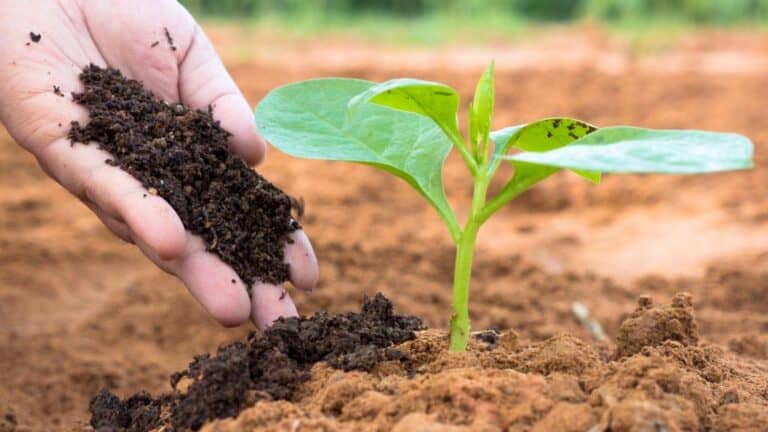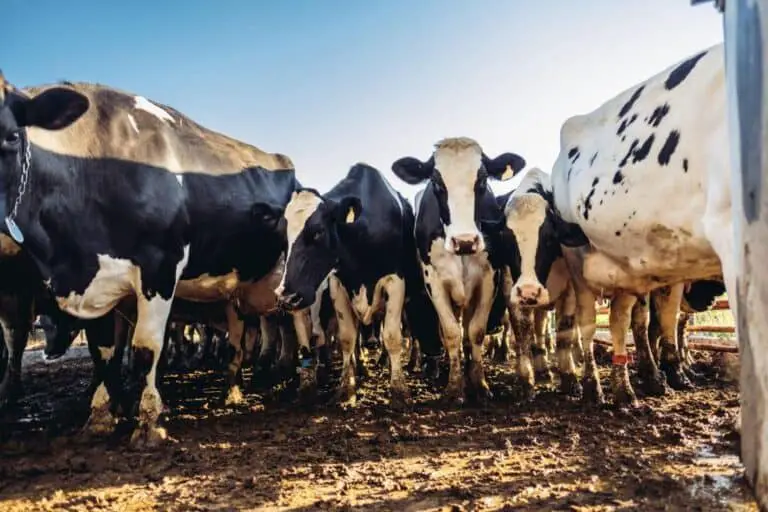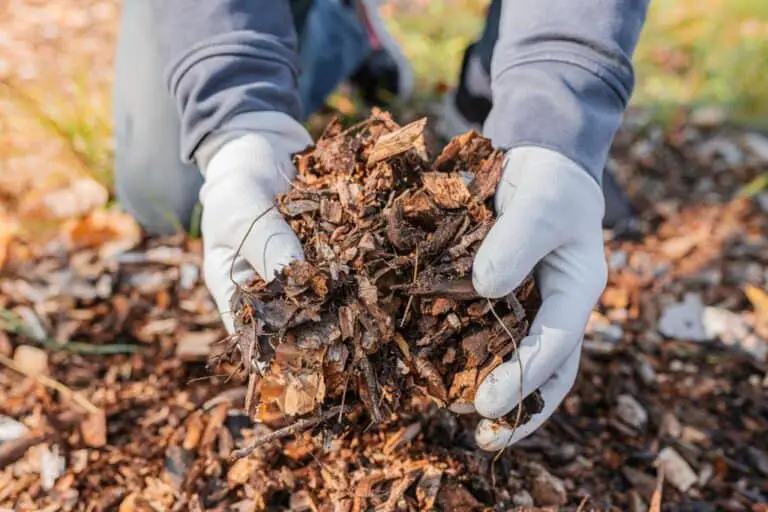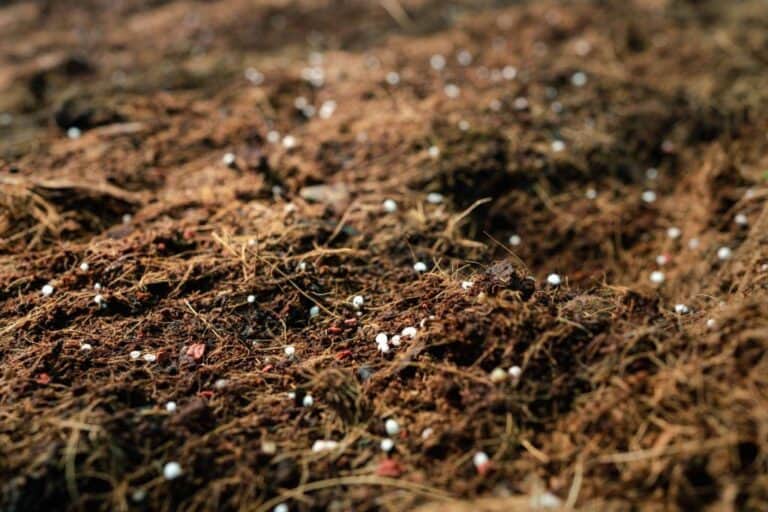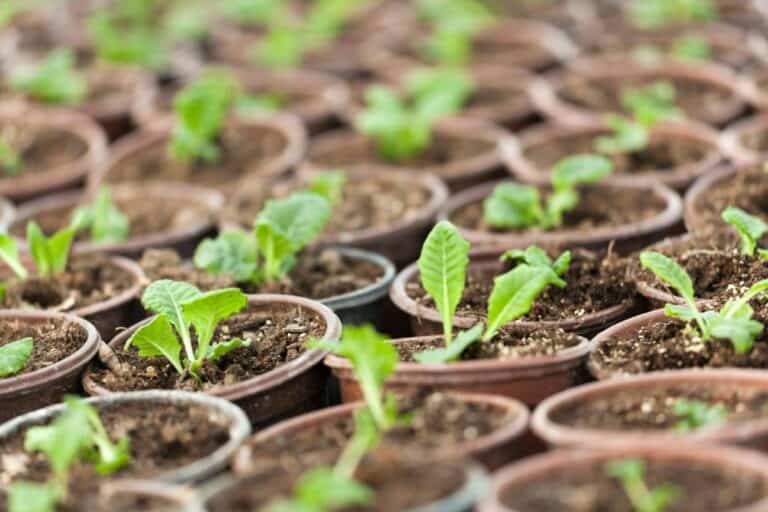How Long Does Fresh Manure Take To Rot and Age Before Using?
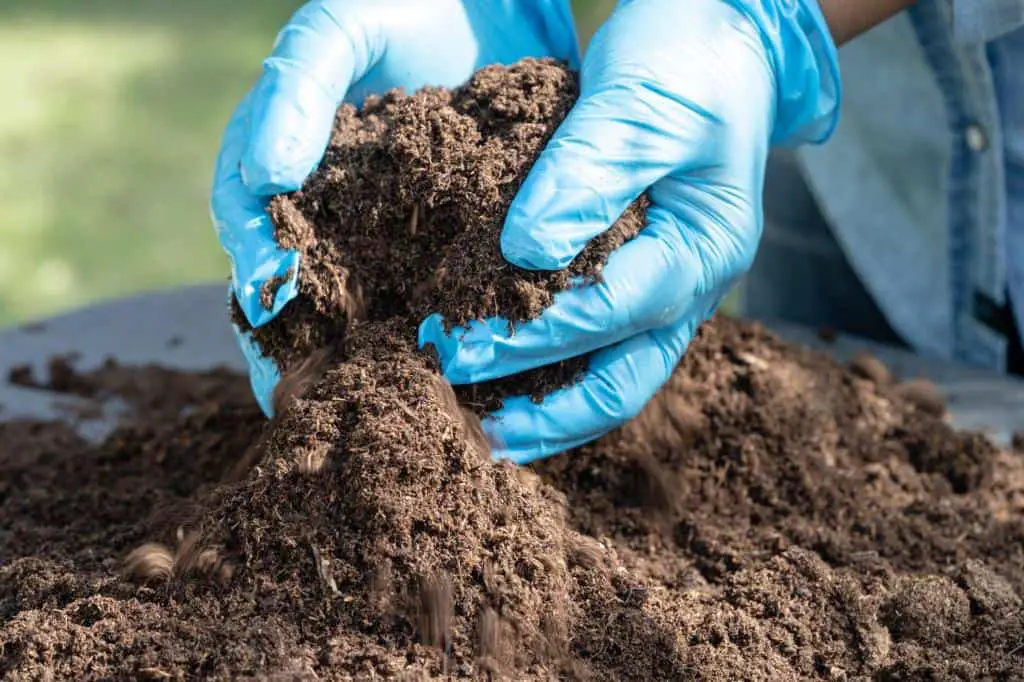
If you’re a gardener or farmer, you probably know that manure can be a fantastic soil conditioner. It’s rich in nutrients, and when properly decomposed, it can work wonders for your plants. But how long does fresh manure take to rot and age before you can use it in your garden?
The time it takes for fresh manure to rot and age before use depends on several factors, including the type of manure, whether it contains bedding, and how it is managed. With human help, the entire composting process can be completed in as little as 4-6 weeks.
In this article, we’ll explore the factors that influence the decomposition process, from environmental conditions to microbial activity, and how they affect the timeline for turning fresh manure into a valuable soil amendment.
So, whether you’re a seasoned horticulturalist or a green-thumb enthusiast, join us as we unravel the mysteries of manure and discover the art of turning a stinky problem into a fragrant solution for your garden’s success.
Understanding Fresh Manure Composition
Fresh manure isn’t just a pile of waste; it’s a complex mixture of organic matter and nutrients. Here’s what you need to know about its composition:
What Is Fresh Manure Composed Of?
Fresh manure typically consists of animal feces, urine, bedding material (like straw or wood shavings), and undigested feed. The exact composition varies depending on the animal source.
Different Types of Manure and Their Characteristics
Various animals produce manure with distinct qualities. For instance, cow manure is known for its high nitrogen content, while chicken manure is richer in phosphorus and potassium. These differences affect the nutrient profile and decomposition rate.
Nutrient Content in Fresh Manure
Fresh manure is a nutrient powerhouse, containing essential elements like nitrogen, phosphorus, potassium, and micronutrients. However, the nutrients are not readily available for plant uptake in this form; they need to undergo decomposition first.
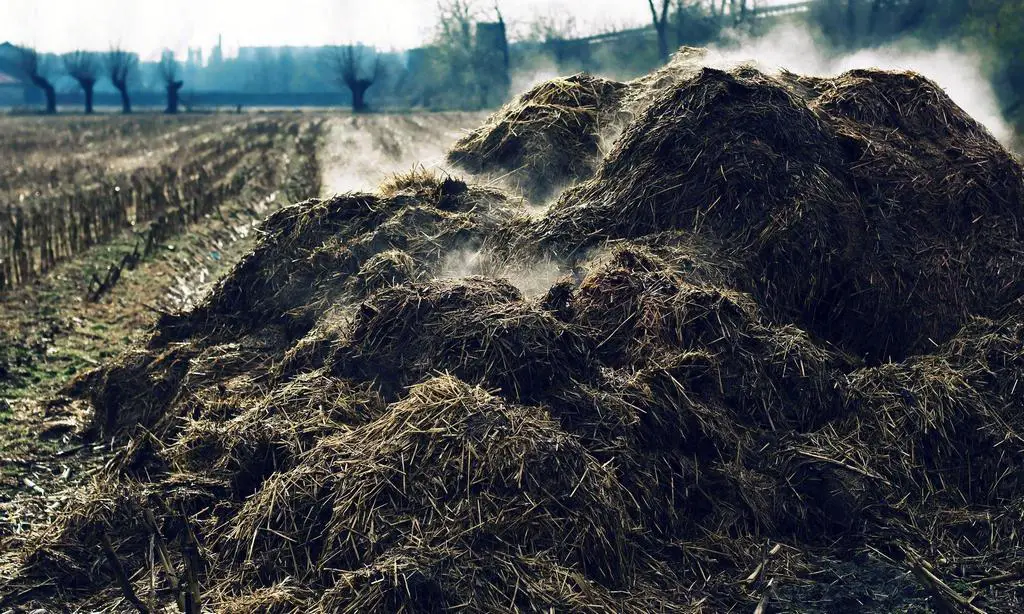
Why Manure Need to Decompost before Use?
You are not supposed to add fresh manure directly to your plan. Doing so can cause more harm than good. Manure needs to decompose before use for several reasons, as per the search results:
- High Amonia: Fresh manure contains high levels of nitrogen and ammonia. Fresh manure can burn and harm plant roots and delicate seedlings if applied directly. Decomposition allows these compounds to break down into forms that plants can readily absorb, preventing potential damage.
- Pathogens and weed seeds: Fresh manure can contain harmful pathogens and weed seeds that can be harmful to plants and humans. Composting manure can kill these pathogens and weed seeds, making it safe to use in gardens and fields.
- Odor: Fresh manure has a strong and unpleasant odor that can be reduced by composting. Composting manure can neutralize the odor and produce a more earthy smell.
- Volume reduction: Composting manure can reduce its volume by 30% to 50%, making it easier to handle and store.
- Nutrient availability: Composting manure can make the nutrients in it more available to plants. The available fertilizer nutrients in compost are released at a slower rate than those available in raw manure, which could increase the value of the product.
- Soil health: Composting manure produces humus which can be added to soil. It increases organic matter in soil, improves water-holding capacity, enhances microbial activity, and improves soil structure. Composted manure is an important source of organic matter for home gardens.
Overall, composting manure is an effective way to manage manure and turn it into a valuable resource for gardens and fields.
Factors Affecting Manure Decomposition
The transformation of fresh, pungent manure into a gardener’s delight involves a series of dynamic factors. It depends on several variables:
- Manure Type: Different animals produce manure with varying compositions. For example, chicken manure is high in nitrogen, while cow manure has a different nutrient profile. This can affect decomposition rates.
- Environmental Conditions: As mentioned earlier, temperature, humidity, and pH levels all play a role. Warmer, moister, and pH-balanced environments promote faster decomposition.
- Microbial Activity: The presence of the right types and quantities of microbes can significantly impact the timeline. Well-balanced compost piles with diverse microbial communities tend to decompose manure more efficiently.
- Oxygen Levels: Managing oxygen levels is crucial. Providing adequate aeration to your manure pile or compost can promote aerobic decomposition, which is faster and less odorous.
- Manure Preparation: Properly preparing the manure can also influence decomposition. Breaking it into smaller pieces or mixing it with other organic materials can help speed up the process.
- Turning and Maintenance: Regularly turning and maintaining your manure pile or compost heap can accelerate decomposition. This helps redistribute microbes, oxygen, and moisture, ensuring even decomposition.
See also: Fastest Way to Compost Chicken Manure?
How Long Does It Take for Fresh Manure to Rot and Decompose?
Given these variables in the previous section, it’s challenging to provide an exact timeline for decomposing time to turn fresh manure into composted manure. However, you can generally expect the manure composting process to take anywhere from a few months to a year or more under optimal conditions.
Here’s a rough breakdown:
- Fast Decomposition: In ideal circumstances, with the right balance of factors, manure can decompose within a few months. This is more likely to occur with smaller, well-maintained compost piles.
- Moderate Decomposition: If conditions are favorable but not perfect, you can anticipate decomposition within six months to a year. This is a common timeframe for many gardeners.
- Slow Decomposition: In less-than-ideal conditions or with larger piles, decomposition may take more than a year. However, even in such cases, the end result can still be valuable compost.
Enhancing the Decomposition Process
While you can’t control all the variables, there are steps you can take to enhance the decomposition process and speed up the transformation of fresh manure into garden-ready compost:
- Balanced Composting: Ensure your compost pile has a good balance of carbon-rich (browns) and nitrogen-rich (greens) materials. This balance provides a suitable environment for microbes.
- Aeration: Regularly turn or aerate your compost pile to introduce oxygen and mix the materials. This prevents anaerobic conditions and promotes aerobic decomposition.
- Moisture Management: Maintain proper moisture levels by watering your compost pile as needed. It should feel like a wrung-out sponge—damp but not soggy.
- Size Matters: Smaller compost piles tend to decompose faster than larger ones. If possible, break down your composting into smaller batches.
- Use a Compost Thermometer: Monitoring the temperature of your compost pile with a compost thermometer can help ensure it stays within the optimal range for decomposition.
- Inoculate with Microbes: If you want to kickstart the decomposition process, you can introduce compost starter or finished compost that’s rich in beneficial microbes.
- Cover It Up: Using a cover or lid on your compost bin or pile can help regulate moisture levels and temperature, creating a more controlled environment.
Remember that patience is key when it comes to composting. While you can take steps to accelerate the process, it’s still a natural biological process that takes time. The end result, however, is well worth the wait—a nutrient-rich, organic soil amendment that will do wonders for your garden.
Read: What Is the Fastest Way to Compost Horse Manure?
Conclusion
So, how long does fresh manure take to rot and age before you use it in your garden? The answer varies depending on a range of factors, from environmental conditions and microbial activity to oxygen levels and manure preparation. Under ideal conditions, you can expect fresh manure to decompose within a few months to a year.
By understanding these factors and taking steps to optimize the decomposition process, you can speed up the transformation of manure into valuable compost. With a little patience and some composting know-how, you’ll soon have a nutrient-rich soil amendment that will promote healthy plant growth and a thriving garden. Happy composting!
By considering factors such as composition, decomposition timeframes, health and environmental considerations, alternative management practices, common mistakes to avoid, and regulatory guidelines, you can harness the benefits of manure while minimizing its potential risks. Responsible manure management not only benefits your garden but also contributes to a healthier environment and sustainable agricultural practices.
FAQs on Manure Decomposition Time
How often should I turn my manure compost pile?
Turn your manure compost pile every 2–4 weeks. Regular turning helps aerate the pile, distribute microbes, and speed up decomposition. Adjust the frequency based on pile size and conditions.
Can you use fresh chicken manure in the garden?
Fresh chicken manure is potent and high in nitrogen, which can burn plants if not composted first. Compost it for at least 6 months to a year before using it in the garden.
What are the risks of using fresh manure on vegetables?
Fresh manure may contain harmful pathogens like E. coli. To minimize risks, always compost or age manure before applying it to vegetable gardens.
Are there any odor control methods for composting manure?
To control odors, ensure proper aeration, maintain moisture levels, and cover the pile. Adding carbon-rich materials like straw can also help absorb odors.
What are the key differences between fresh manure and composted aged manure in terms of nutrient content?
Aged manure has reduced ammonia and pathogens, making it safer. Nutrient levels remain, but aged manure typically has more stable and plant-friendly nutrients.
Can I use composted manure from different animals together in my garden?
Yes, you can mix composted manure from different animals in your garden. It can provide a balanced blend of nutrients. Ensure it’s well-composed to minimize risks.
What are the best practices for storing fresh manure before it’s ready for use?
Store fresh manure in a covered, well-ventilated area away from water sources to prevent runoff. Regularly turn and aerate the pile to facilitate decomposition and minimize odors.

